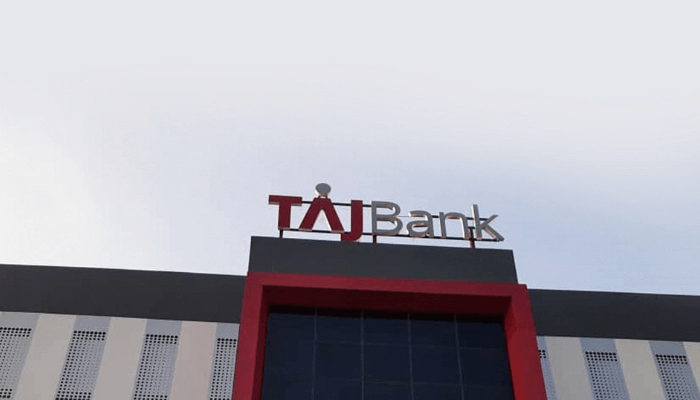
With N1.017 trillion in assets, TAJBank Limited has emerged as Nigeria’s largest non-interest bank, solidifying its leadership in the growing non-interest banking (NIB) sector, following five years of operations characterised by rapid expansion and performance milestones.
The development was disclosed during a seminar organised by Leaders Corporate Services in Abuja, themed “Roles of Non-Interest Banks in SMEs’ Financing.”
Speaking at the event, Olabode Akeredolu-Ale, an investment analyst and chartered stockbroker revealed that based on the latest half-year 2025 financial statements approved by regulators, TAJBank currently tops the NIB subsector in terms of total assets, gross earnings, and earnings per share.
According to Akeredolu-Ale, TAJBank’s total assets rose to N1.017 trillion as at June 2025, up from N953.098 billion recorded in December 2024—an increase of over N64 billion. This figure places the bank ahead of its peers, with the next competitor trailing by approximately N53 billion in total assets.
Similarly, TAJBank’s gross earnings surged significantly in the first half of 2025, climbing to N53.752 billion from N32.86 billion at the end of 2024, representing a 64 percent growth. “This places the bank clearly above other non-interest banks in terms of income performance,” Akeredolu-Ale noted.
He also pointed out that the bank recorded earnings per share (EPS) of 61.36 kobo for the same period—about 92 percent higher than the EPS of the nearest competitor in the NIB space.
“The figures I am reeling out here on the NIBs are sourced from the banking and capital market regulatory institutions’ platforms, which anyone can access to verify,” he stated. “I am part of this event because of my research interest in non-interest banking and how the players in the subsector in Nigeria can help to leverage their competencies in innovation and ethical banking to support our MSMEs.”
Highlighting the economic relevance of NIBs amid Nigeria’s tight credit conditions and rising interest rates, Akeredolu-Ale stressed that NIBs have become indispensable in providing affordable funding options for micro, small and medium enterprises (MSMEs), which often struggle to secure financing from traditional deposit money banks (DMBs).
“Today, the MSMEs cannot access DMBs’ loans due to high lending rates and other inclement macroeconomic factors. This is where I think the NIBs have become very crucial to Nigeria’s economic growth,” he said.
He further urged SME operators at the seminar to consider switching to non-interest banking options in order to access “cost-friendly financing” and benefit from the ethical and inclusive financial model offered by institutions like TAJBank.
Echoing similar sentiments, Benjamin Chukwudi, another financial analysts who spoke at the seminar, praised NIBs for their growing influence in supporting the SME ecosystem. He said the institutions have been “catalytic” in providing access to interest-free loans and advisory services that are helping SMEs stay afloat despite the high cost of doing business in the country.
According to Chukwudi, “The non-interest banks are not only offering loans without interest, but they are also equipping entrepreneurs with critical financial management support, which is key in this challenging business environment.”

